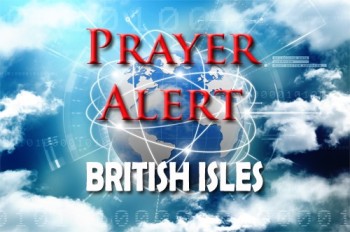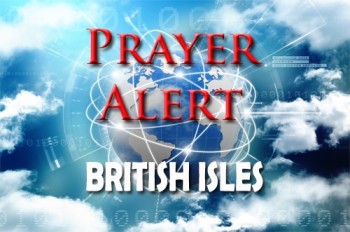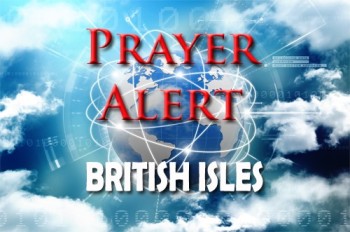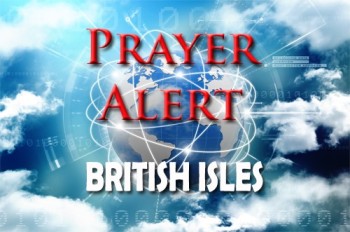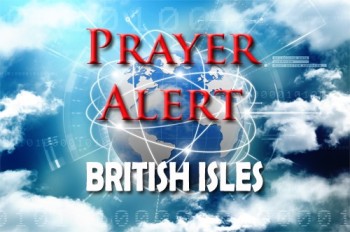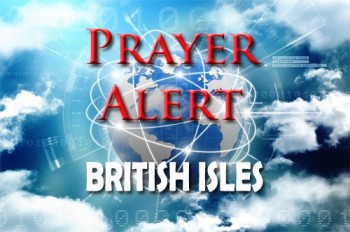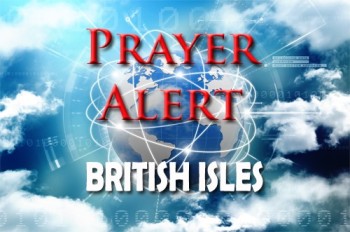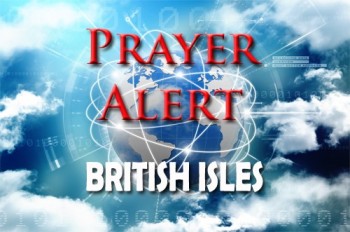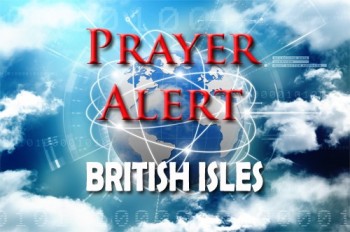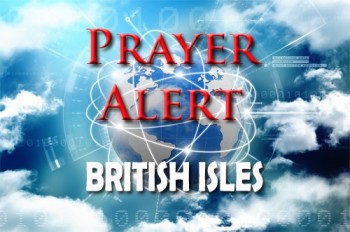Displaying items by tag: Jeremy Hunt
Parents in England urged to sign up for free childcare in 2024
In England, working parents are being encouraged to apply for 15 hours of free childcare per week for their toddlers starting in the new year. This initiative is part of a broader reform by the Department for Education, which also includes a childminder start-up grant. Additionally, a £400 million funding increase for early years providers is planned for 2024-25. Chancellor Jeremy Hunt's budget plans, announced in March, will extend this offer to families of children as young as nine months, providing thirty hours of free childcare every week. Starting in April 2024, this benefit will be available for parents of two-year-olds and will expand to include children over nine months from September next year. However, opposition critics, including the shadow education secretary and Liberal Democrat spokesperson, argue that the policy is not feasible due to a shortage of childcare providers and insufficient government funding. They warn of a potential crisis in childcare services.
Autumn Statement: NI cut but tax burden still rises
In his Autumn Statement on 22 November, Chancellor Jeremy Hunt announced a significant cut in National Insurance from January, from 12% to 10%. However, due to previous tax changes, many workers might not see substantial benefits. He also raised the state pension by 8.5% and universal credit by 6.7%. Hunt claimed the Government had stabilised the economy, allowing for tax cuts aimed at boosting growth ahead of the next year's general election. Labour criticised the NI cut as insufficient compared to previous tax increases by the Conservative government. Hunt also made a tax break for business investments in new equipment permanent, touted as the 'biggest business tax cut in modern history.' Despite these cuts, the overall tax burden is set to reach a 70-year high. The Office for Budget Responsibility (OBR) revised growth forecasts downwards and projected a delay in the return to pre-pandemic living standards until 2027/28, citing prolonged inflation and higher interest rates. The NI reduction, seen as a significant move, led to speculation about an early general election.
UK to be worst-performing major economy?
The International Monetary Fund (IMF) says Britain is the only G7 economy forecast to shrink in 2023 due to higher energy prices, rising mortgage costs and increased taxes. England and Wales have had the most company insolvencies since 2009, UK mortgage approvals have tumbled, and grocery price inflation is a record 16.7%. Britain is the only advanced economy expected to fall into recession this year. The IMF said 2023 would be ‘quite challenging’ for the UK as it slipped from top to bottom of the G7 league table. We can pray for God to strengthen Jeremy Hunt’s mind and spirit as this news puts more pressure on him to balance Britain’s books successfully. Pray also for God to anoint him with heaven's wisdom in preparing strategies for the spring budget as the Bank of England continues to raise interest rates.
Autumn Statement: tax increases for everyone
After a wild few months in the UK economy, the Government wants to raise more money to cover a big black hole in its accounts. Jeremy Hunt, the Chancellor, has said everyone must pay more tax. Meanwhile, a group of economists have questioned whether the ‘black hole’ in public finances must be filled with austerity and tax rises. They said that the £50bn hole entirely disappears if debts are calculated differently. When Rishi Sunak was chancellor two years ago, he used a different accountancy rule to arrive at a government debt figure. Changing it back to what it was before the 2021 Autumn Statement completely removes the black hole, according to the economists' analysis, and will put government debt back on a sustainable footing. Pray for Jeremy Hunt and all members of the treasury to be wise regardless of the accountancy rules they choose to follow.
Autumn Statement: protecting the poorest
The Chancellor announced targeted payments to help with the cost of living. The national wage will jump from £9.50 to £10.42 an hour from April; help for energy bills will be extended, but less generous. There will be cost of living support for pensioners, the disabled, and those on low incomes. Means-tested benefits, including Universal Credit, and pensions will rise in line with inflation. Social sector rent rises will be capped at 7% in the next financial year. However, the cap on social care costs due next October will be delayed by two years. A ‘temporary’ 45% tax on companies generating electricity will be applied from January, and windfall taxes on oil and gas company’s profits will increase from 25% to 35% and extend until 2028. The NHS budget will increase in each of the next two years by an extra £3.3bn, and schools will receive £2.3bn extra in 2023 and 2024.
Jeremy Hunt, new chancellor of the exchequer
55-year-old Jeremy Hunt, a Christian, had previously been former foreign secretary and health secretary. He is a big supporter of the cause of freedom of religion or belief. In 2018, while foreign secretary, he commissioned an independent review into Foreign Office support for persecuted Christians. The report, by the Bishop of Truro, presented 22 recommendations for the Government to make changes in policy and practice to protect freedom of religion and belief around the world. Mr Hunt goes to church on Sundays and sometimes receives communion at a midweek lunch-hour celebration in the House of Commons. Asked about his faith in 2019, he said, ‘I sometimes pray, like regular Church of England folk: it's part of my life and my identity, but I don't think it defines my politics.’
Mental health deaths
The number of deaths of people treated under the Mental Health Act in England rose during the coronavirus pandemic. The Care Quality Commission's findings come amid concerns over staff shortages in psychiatric units. 490 people died while detained under the act in the year to March 2021, 324 of them for non-Covid reasons. The average overall figure between 2012 and 2019 was 273. Former health secretary Jeremy Hunt warned that shortages of doctors and nurses were now compromising patient safety ‘in every part of the NHS’. Mr Hunt, who now chairs the Commons health and social care committee, said ‘We still put far too many people into secure accommodation when they haven't committed any crime, just because it's the only option left.’
Jeremy Hunt warns China against 'repression'
The 1984 treaty between the UK and China paved the way for sovereignty over the territory to pass back to Beijing. A joint declaration set out how the rights of Hong Kong citizens should be protected for the next 100 years. Hong Kong has a judicial system independent from China, but a controversial proposed extradition bill flies in the face of the treaty. It caused huge protests, and activists occupied parliament buildings. China’s reaction to this event prompted Jeremy Hunt to summon its ambassador on 3 July, saying that he rejected Beijing’s ‘unacceptable behaviour and inaccurate remarks’. On 4 July China warned the UK not to interfere in its domestic affairs and labelled the UK ‘hypocritical’, saying that it no longer has a say in how Hong Kong should be run and managed. See also ‘Hong Kong Christians’ in world section.
Jeremy Hunt and Christian persecution
Pervasive persecution of Christians, sometimes amounting to genocide, is ongoing in the Middle East, according to a report commissioned by the British foreign secretary, Jeremy Hunt. ‘The report finds an ‘inconvenient truth’; 80% of persecuted religious believers are Christians. Some of the report’s findings will make difficult reading for Middle East leaders who are accused of tolerating or instigating persecution. The Turkish AK party is highlighted for denigrating Christians. Hunt, an Anglican, has made the issue of Christian persecution one of the major themes of his foreign secretaryship. ‘I think we have shied away from talking about Christian persecution because we are a Christian country and we have a colonial past, so sometimes there’s a nervousness there. But we have to recognise that Christians are the most persecuted religious group.’ The interim report sets out the scale of the persecution. A final report in the summer will state how the Foreign Office can raise awareness of the issue.
Our shameful discrimination against Christians
Foreign secretary Jeremy Hunt recently launched a government review on the global persecution of Christians. He stated, ‘The UK can and must do more for the many Christians facing persecution and discrimination worldwide, but first we must look to our own discrimination against Christians at home’. The Sunday Times says that the Government is ‘repeatedly failing to provide sanctuary in Britain for a fair proportion of Christians’, and warns that this policy ‘appears to discriminate in favour of Muslims and risks embarrassing the Government’. Barnabas Fund is also calling for an end to discrimination against persecuted Syrian Christians seeking a safe haven in the UK. MP Sir John Hayes called for people to stand up for religious freedom and warned, ‘The “golden era” of religious liberty may be coming to an end. Religious believers are facing increased pressure to restrict their faith to the private sphere’.
